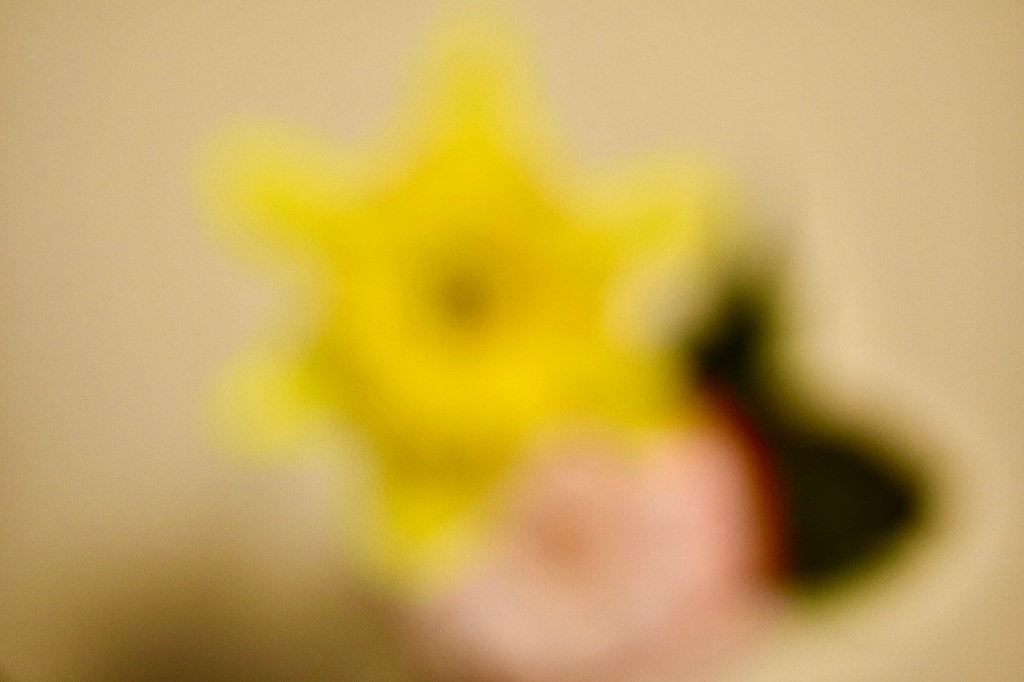
They should, by most accounts, ignite something inside me. Out of the bedroom window, I see them. The year’s first two daffodils, bursting forth beyond the under-wintered soil. Waxy yellow asterisms, standing underneath the skeletal remains of Rudbeckia which seem to rise up around them. They are like a low-flung binary star hovering in the ruins of a thin, abandoned cage. These Narcissus are the first fully open flowers in our garden (not the Camellia—a tree which dips over the fence from the neighbors’ yard into our own). I should be overflowing with anticipation. More flowers are on the way.
But I am distracted. No, not distracted. Dislodged. From the everydayness of things. From the admittedly indicting comfort living in the imperial core has afforded me. I am dislodged not by the emergence of these two flowers but that they coincide in time with the loss (murder) of dozens of other flowers—families, neighbors, children, generations—in Rafah, the southernmost city in Gaza. I am dislodged by the night before, when this loss coincides with proclamations of entertainment made by people watching the Super Bowl. The teams involved, to me, are immaterial. Its halftime performer, equally so. What does materialize for me arises in the extent to which the attempted extermination of people in real time occurs in chorus with such entertainment as well as that entertainment’s voice. The latter is deafening.
Earlier that day, my beloved cuts the two daffodils, bringing them inside. One of them sits at our kitchen counter, the other is taken to my altar. The fragrance permeates both rooms: a marriage of rain and mud and musk.
The following morning, in a sleep deficit, I head to the altar to meditate. I should be comforted by the attention the daffodil elicits. But I am dislodged. My mind’s eye smells the sour iron of blood exposed to open air. I know this smell intimately. The scent of the flower seems pale, sickening even, in this pairing, and I have to leave the room.
I don’t know if every flower in the future will do this. The thought that they had not done this before, when I’ve had 47 years to pay greater attention to why they are doing it now, sees a sense of shame bubble up inside of me. But even with the fires and thorns of my own years, they are still but a fraction of the 75-plus years Palestine has lost its flowers.
Reading Japanese anarcho-communist Zen monk Uchiyama Gudō’s “Anarchist Communist Revolution: In Commemoration of Imprisonment: Why is life so hard for tenant farmers?”[1] I am struck by the idea that shame can potentially be a fuel. In this letter, written from prison, Gudō advises the farmers to first consider their station in life, as an exploited yet essential community under the thumb of the Meiji Restoration, then to use it as motivation to move towards self-governance.
Gudō writes:
Because these wrong ideas [“superstitions” of deference to authority and hierarchy] have penetrated deeply into your minds, you do not protest against paying land rent, taxes, or sending your sons into the army, no matter how poor you are. If someone told you, it’s OK not to pay your land rent, it’s OK not to pay your taxes, it’s OK not to send your beloved son to the army, you would think such a person is a rebel or a traitor to the country and you would not listen or read about such ideas, even though these ideas are in fact meant for your freedom and for improving your life. This is what I would like you to think and read carefully about the most.
What does self-governance have to do with daffodils, American football, and genocide? Everything. In particular, self-governance opposes the socially-constructed traps of celebrity, spectacle, and individualism. In these traps, individual desires win out over collective possibilities. People maintain the illusion of being comfortable, under the impression that they are protected and innately charged with the potential to become celebrities or at the very least highly visible themselves. They are, to their mind, flowers waiting for their chance to emerge in front of mansions or palatial spaces the state has convinced them they were made to reach. This so-called dream, given enough bandwidth, can sufficiently drown out any atrocity. It may even make some see atrocities as inconvenient, distractions, or worst of all, as necessary.
The beauty of daffodils, however, is that they often migrate from where they are planted. They form clumps that move away from the original site, with or without the gardener’s hand. Daffodils, one might say, instinctively exhibit collectivist behavior. They are not so much governed by where they begin but rather are guided by where they have the potential to go. This potential, in contrast to the individualistic trap mentioned earlier, is no trap at all. And it is done en masse, not merely one bulb at a time.
As I look up from writing this, it seems brighter outside. The rain has stopped. The nausea has subsided. I feel I am not as dislodged as I believe so much as I am grappled by an ache for an alternative.
For our collective plantings.
[1] Rambelli, Fabio. Zen Anarchism: The Egalitarian Dharma of Uchiyama Gudō. 2013. Institute of Buddhist Studies
2 responses to “Daffodils”
Thank you, Guérin, this was beautiful.
Thank you so much!